Workshops
Circle 6 offers several workshops to our clients, ranging in duration from a few hours to an entire week
Overview
Circle 6 offers several workshops to our clients, ranging in duration from a few hours to an entire week. Our experts will take you through the entire process – from planning to execution to follow-up. Our level of involvement is up to you – we can handle every aspect of the event or we can approach things from a train-the-trainer perspective. Please contact us to learn more. Here are a few examples of the workshops we offer:
KAIZEN
Duration: 1-5 DaysOverview
Kaizen, simply put, refers to rapid process improvement. It is often called “Rapid Continuous Improvement (RCI)”, “Rapid Process Improvement Workshop (RPIW),” or “Rapid Improvement Event (RIE).” Kaizen projects still go through the 5 key phases: Define, Measure, Analyze, Improve, Control (DMAIC). The difference is that we accelerate the process in order to drastically reduce the project cycle time. Progress is most commonly linked to three high-level phases: Preparation, Event, and Transition. During the Preparation phase, project definition is completed, a clear current state picture of process performance is obtained, and all logistics for the pending event are coordinated. The Event phase is the highly action oriented phase, when root-causes of poor performance are identified and improvements are developed and implemented. During the Transition phase all improvement implementation is completed, controls are put in place to sustain the results, and ownership is transitioned back in the day-to-day process management environment. Common themes for Kaizen events:
- 5S
- Pull System Implementation
- Process Flow Improvement
- Quick Setup/Changeover
- ABC Part Stratification
- Cycle Time Reduction
- TPM
Our experts will work with you to plan, execute, and sustain significant breakthroughs on some of your most challenging operational issues. Please contact us to learn more.
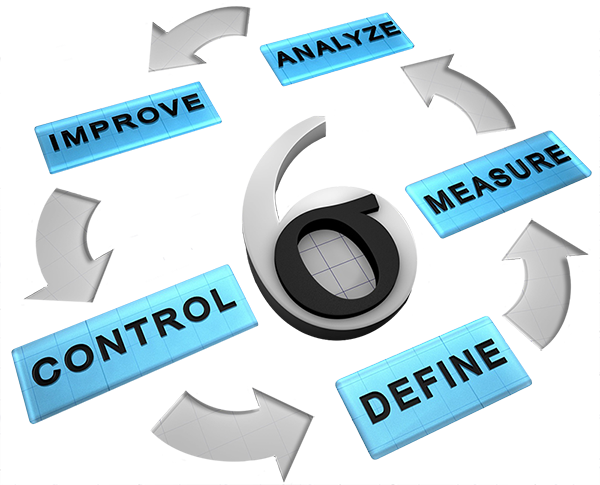
Project Identification and Selection
Duration: 1-2 DaysOverview
Meaningful improvement begins with selecting the right projects. Too often we encounter organizations that select projects based on convenience rather than alignment to strategic goals. The Project Identification and Selection Workshop (PISW) is designed to sift through the trivial and focus on the meaningful. Our experts will take you through the following steps:
1. Identify Organizational Focus Areas
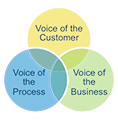
What are the strategic focus areas of the business?
What “pain” are our customers experiencing?
What are our biggest cost drivers?
Which major processes offer the most opportunity?
2. Translate Focus Areas into Project Opportunities
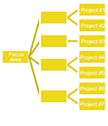
Translate Focus Areas into project ideas
Establish Programs vs. Projects
Differentiate LSS projects versus other projects
Does fixing these pain points align with the organizational strategy?
3. Prioritize Projects
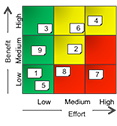
Prioritize opportunities based on benefit, investment, and time
Align-on opportunities with project sponsors for project definition
Assign best ideas for Charter creation
4. Write Charters

Complete draft project charters (Pre-Define)
What are our improvement objectives and targets?
What is the value of closing the gap between ‘Current’ and ‘Future’ states ($$$)?
5. Final Prioritization & Launch
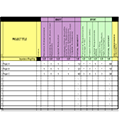
Complete final prioritization based on Benefit and Effort
Establish project dependencies and final launch order
Assign projects to a Project Sponsor and Belts
Launch projects
Root Cause Analysis
Duration: 1 DayOverview
Root-cause problem solving is an essential skill in any environment. Our experts will teach you how to identify the underlying reasons why a problem occurs so you team can devise solutions that will permanently eliminate the defect or problem. We will take your team through the following steps:
- Define the business problem
- Identify the potential root causes
- Translate the business problem into a statistical problem
- Test the potential root causes to develop a statistical solution
- Verify the root causes
- Create the business solution

We will teach you how to use many of the following tools:
- Fishbone Diagram
- Cause and Effect Matrix
- FMEA
- Causal Analysis
- 5-Whys
- Pareto, Boxplot, Histogram, Dot plot etc.
- Hypothesis Testing
Please contact us to learn more
Value Stream Mapping
Duration: 1-2 DaysOverview
A value stream map is simply a data rich process map, but it is one of the most powerful tools within the Lean Six Sigma framework. It allows people to “see the true process”, makes waste visible, and serves as a foundation for prioritizing improvement efforts. Our experts will take your team through 9 key steps:
- Scoping – select the service/product family to map.
- Draw the process flow
- Add the material flow
- Add the information flow
- Add process data collection boxes
- Conduct non-value-add analysis
- Add the lead time ladder
- Verify the current state map
- Analyze the map to identify potential improvements
Please contact us to learn more.

